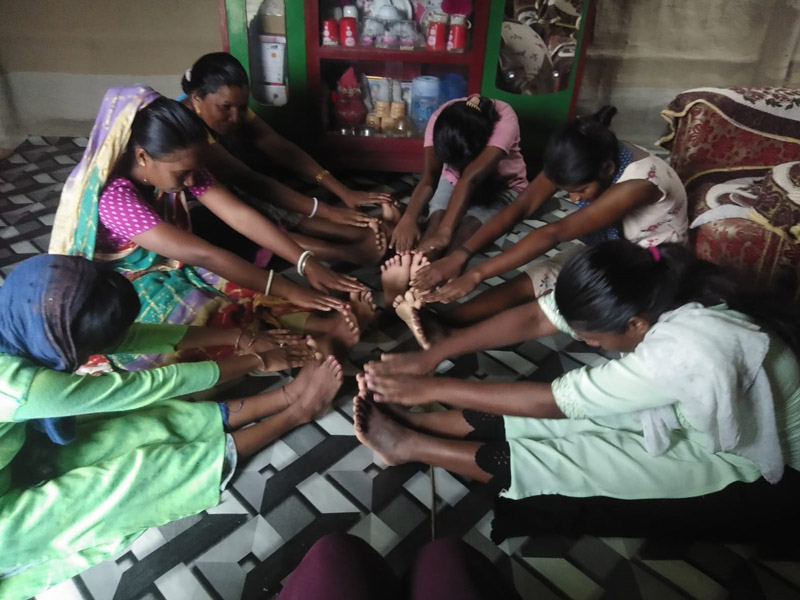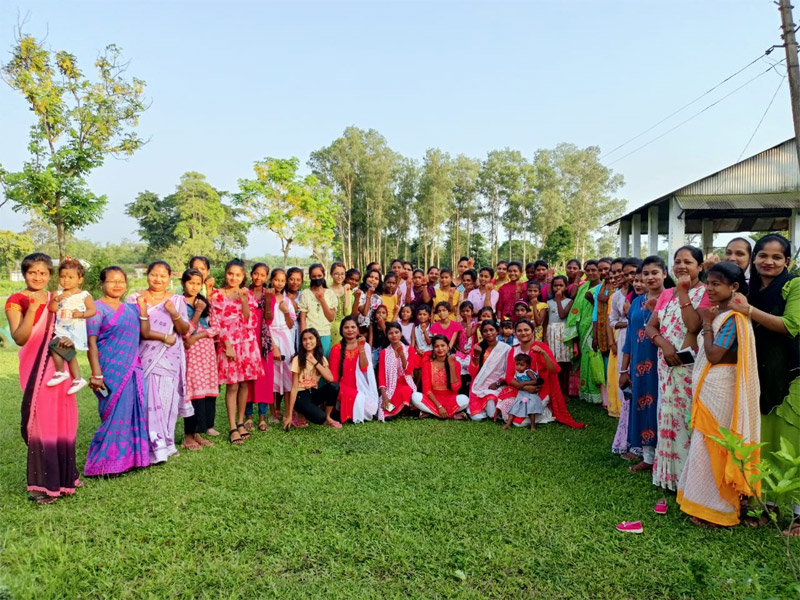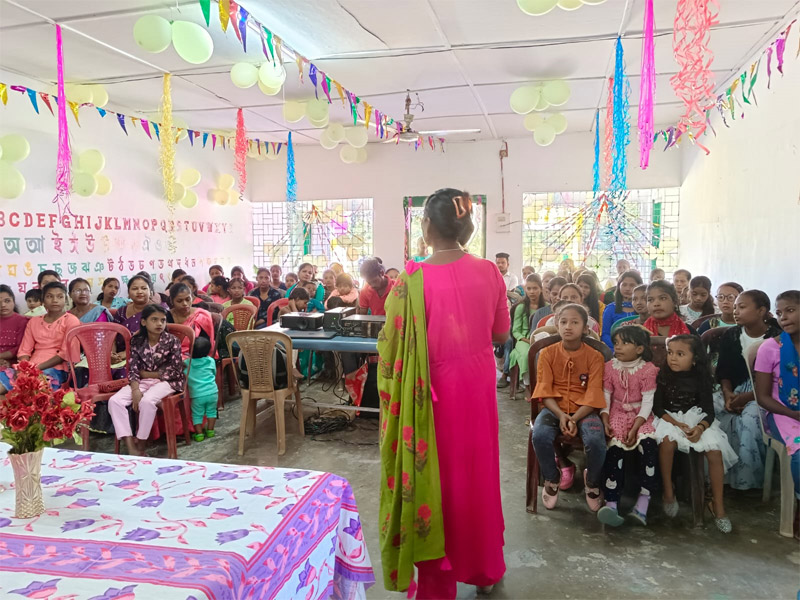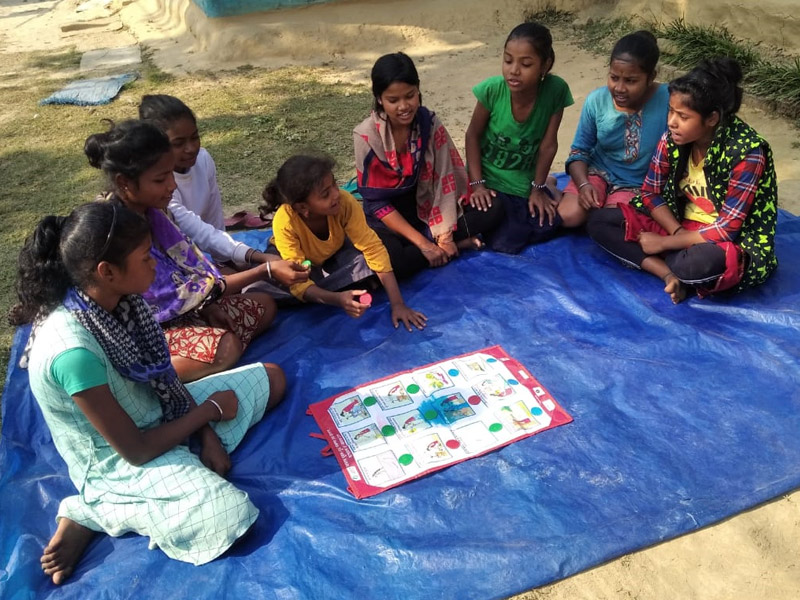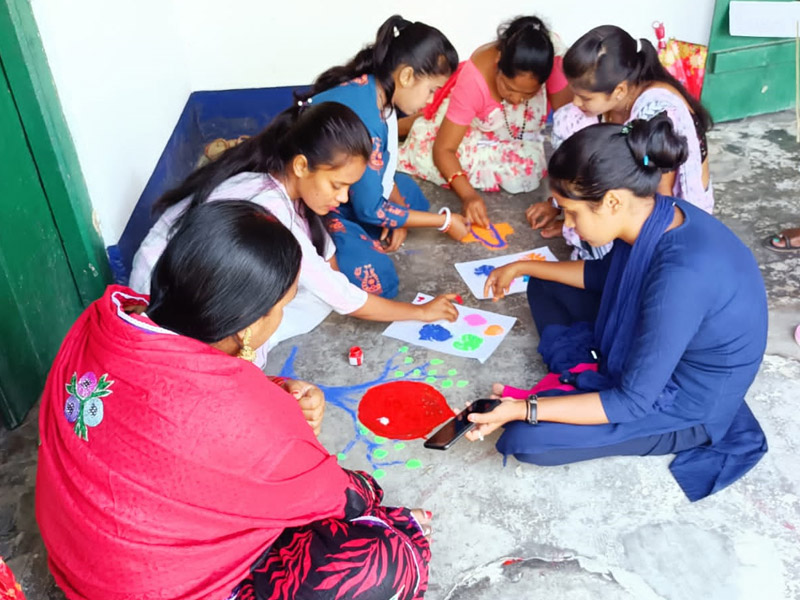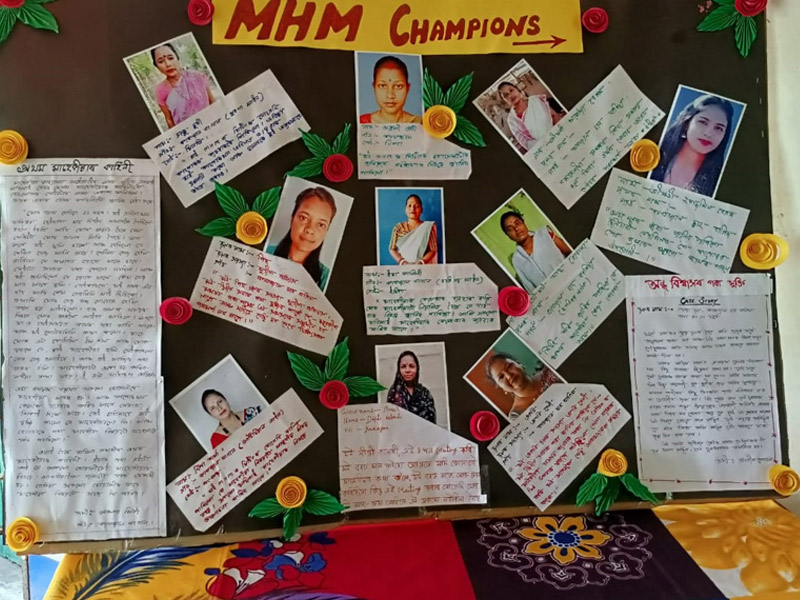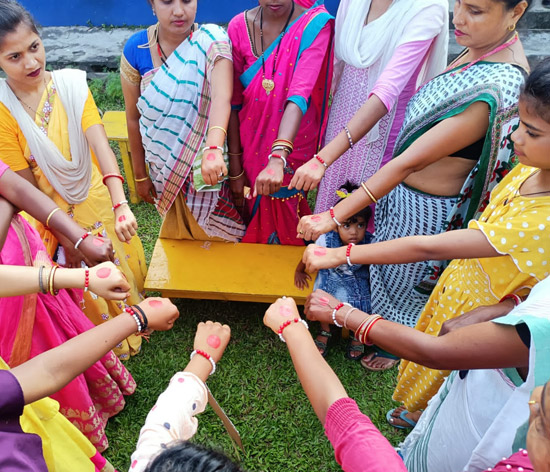
Like many women across India, Naina Urang and Bobita Manjhi regarded menstruation as a taboo subject, shrouded in shame. It was not a topic they would discuss with other women, or even their mothers.
Bobita, 19 years old, who lives in Hathkula village in Assam, considered herself unclean during her periods. She would not enter the kitchen on those days. Naina, age, who is a resident of Purna line of Kakajan tea estate, believed that menstrual cramps were caused by a disease. The cloth that she used during her menstruation would be washed and dried by hiding it under other clothes.
Tata Trusts launched the Menstrual Hygiene Management (MHM) programme to dispel such myths and make women more aware of menstrual hygiene as a normal body function. MHM is a part of the Trusts’ Water, Sanitation and Hygiene (WaSH) initiatives. It seeks to breach the culture of silence surrounding menstruation by educating adolescent girls and women on the subject and by breaking down the taboos and myths associated with it. The intent is to make women aware of how menstrual hygiene affects their overall health.
A big part of the programme is the role of MHM sakhis (friends), who connect with the community and hold meetings in the field. Through four sessions that cover different aspects of MHM, the sakhis educate participants on the workings of a woman’s body and also encourage them to share their beliefs and experiences with other women participants.
Bobita, who is a part of the Anurag SHG in Hathkula attended a session conducted at the Teok tea estate by sakhi Pallabi Boraik. Naina was part of a session conducted for the Prabhati women’s group in Kakajan tea estate by sakhi, Aruna Mirdha.
Both women had never attended a meet like this, and nor had anyone held a talk on menstruation in their village before. They were uncomfortable in the beginning. But after the four-day sessions, Bobita and Naina felt emboldened enough to break their silence.
Bobita admitted that the MHM sessions had changed her ideas and views on menstruation. She learnt about the importance of nutrition and the use and safe disposal of hygiene products. She now feels that there is no reason to hide one’s period since it is a normal body function, and also that cooking and cleaning during menstruation should be a matter of individual choice. “There’s so much to learn about periods that I never knew before,” she says.
Naina found that the sessions helped her overcome her ignorance by answering many of her unvoiced queries. She now knows the importance of hygiene in preventing infections as well as the reasons for menstrual cramps. There’s been a behavioural change, too, as she has realised that it is better to dry her menstrual cloth in direct sunlight which works as a disinfectant.
Open communication is one of the lessons learnt. Bobita feels it is important for mothers and daughters to talk openly about menstruation so that they can support each other. She wants to educate her daughter and other girls in the community on the subject so that they can overcome their fears and misconceptions. Naina believes that men need to understand the link between the menstrual cycle and pregnancy so that they can support their women and nurture happy families as a result.
The MHM programme is helping to break barriers of shame through education and awareness.
